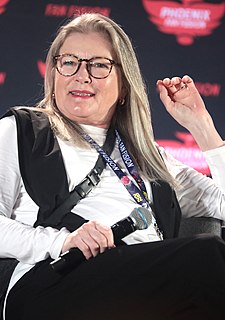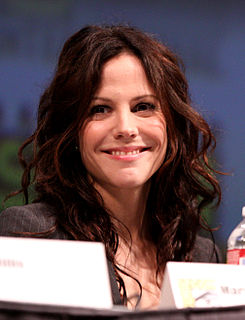A Quote by Kate DiCamillo
It's a weird kind of disconnect that this whole story [he Miraculous Journey of Edward Tulane] grew around a real doll of mine, and here he is, with his "Edward" expression on his face. It's kind of reality bumping into fantasy.
Related Quotes
The Miraculous Journey of Edward Tulane began with a friend giving me a rabbit doll - forgive me, Edward, for using that word; he doesn't like "doll" - for Christmas. I said, "Oh, he's lovely, what's his name?" And she said, "Edward." And a few days after I received the rabbit, who was dressed very handsomely in Edwardian kind of clothes, I saw him stripped of his finery and face down on the bottom of the ocean floor. Why? I don't know. But that's where his story began in my head.
In the beginning of the book, The Miraculous Journey of Edward Tulane, Edward is more enamored of himself than he is of anybody else. He's a very fine rabbit; he's been constructed incredibly well, and he has a wardrobe of amazing clothing. He's arrogant, and he doesn't care whether Abilene loves him or not. As the journey progresses, as he gets passed from hand to hand, he learns what it means to love. He gets more and more bedraggled, and his clothing is lost; yet he becomes finer in soul and heart than he was at the beginning of the journey.
SEASONS PASSED, FALL AND WINTER and spring and summer. Leaves blew in through the open door of Lucius Clarke’s shop, and rain, and the green outrageous hopeful light of spring. People came and went, grandmothers and doll collectors and little girls with their mothers. Edward Tulane waited. The seasons turned into years. Edward Tulane waited. He repeated the old doll’s words over and over until they wore a smooth groove of hope in his brain: Someone will come; someone will come for you.
I tensed for the spring, my eyes squinting as I cringed away, and the sound of Edward's furious roar echoed distantly in the back of my head. His name burst through all the walls I'd built to contain it. Edward, Edward, Edward. I was going to die. It shouldn't matter if I thought of him now. Edward, I love you.
Of course, I still saw Edward at school, because there wasn't anything Charlie [her dad] could do about that. And then, Edward spent almost every night in my room, too, but Charlie wasn't precisely aware of that. Edward's ability to climb easily and silently through my second-story window was almost as useful as his ability to read Charlie's mind.
Never in his life had Edward been cradled like a baby. Abilene had not done it. Nor had Nellie. And most certainly, Bull had not. It was a singular sensation to be held so gently and yet so fiercely, to be stared down at with so much love. Edward felt the whole of his china body flood with warmth. (page 128)
The book [The Miraculous Journey of Edward Tulane] is about the fact that living in this world means that your heart is necessarily going to get broken. But the book also says that's okay. That's the only way to live a truly human life - with your heart getting broken - and eventually getting flooded with love.
I play Edward G. Robinson [in Trumbo], who was a close friend and a co-worker of Dalton's [Trumbo]. They worked together on at least one or two screenplays. A lot of these stories take famous people and show you who they are behind the scenes, which is kind of fun. One of the things about getting to play Edward G. Robinson was learning who the man was away from his movie-star exterior.
So, instead of panicking, I closed my eyes and spent the twenty minutes' drive with Edward. I imagined that I had stayed at the airport to meet Edward. I visualized how I would stand on my toes, the sooner to see his face. How quickly, how gracefully he would move through the crowds of people separating us. And then I would run to close those last few feet between us - reckless as always - and I would be in his marble arms, finally safe.
Let us not compare Edward Snowden's situation with that of Chelsea Manning or Jeremy Hammond, who is also imprisoned in the United States. As a result of WikiLeaks' hard work, Edward Snowden has political asylum, has travel documents, lives with his girlfriend, goes to the ballet and earns substantial speaking fees. Edward Snowden is essentially free and happy. That is no coincidence. It was my strategy to undo the chilling effect of the 35 year Manning sentence and it has worked.
























